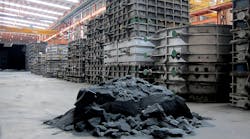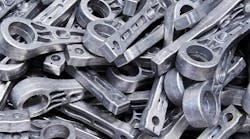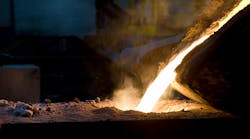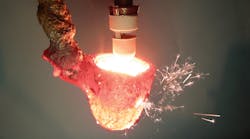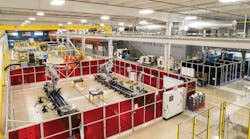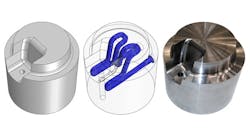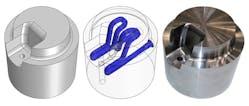HTS International Corp., a developer and manufacturer of advanced tooling systems plans to build a global headquarters and manufacturing center in eastern Tennessee, a $21.4-million project that would employ about 200 workers over the coming four years. HTS molding, tool, and die products are used in diecasting, injection molding, extrusion, and hot stamping processes. The new operation also will include a research and development lab, metallurgical lab, and an expanded additive manufacturing center.
HTS uses a proprietary additive manufacturing process called innovative Metal Fusion Technology (iMFT™) to produce a series of mold and tooling products called the innovative Thermal Management Solutions (iTherm™) series. In development for more than a decade, iMFT has been in industrial use since 2014.
The iTherm line of tooling systems are engineered in various tool steel alloys (H11, H13, and P20, among others) with conformal cooling channels that help to lower cycle times, reduce polymer warpage, reduce casting porosity and soldering, and prolong component life and wear resistance.
“The cycle time savings help our customers compete in a global market,” according to HTS.
Research is continuing to expand the range of alloys that can be formed using iMFT, and the number of industrial applications for finished products.
Various Tennessee state and local agencies, as well as the Oak Ridge National Laboratory, worked to bring the HTS operations to the area, some of which are providing financial incentives to HTS in connection with the expansion. Doug Lawyer, v.p. - economic development for the Knoxville Chamber of Commerce, said, “ORNL was a huge reason this company chose this location … The partnership they have with the lab was a big factor.”

